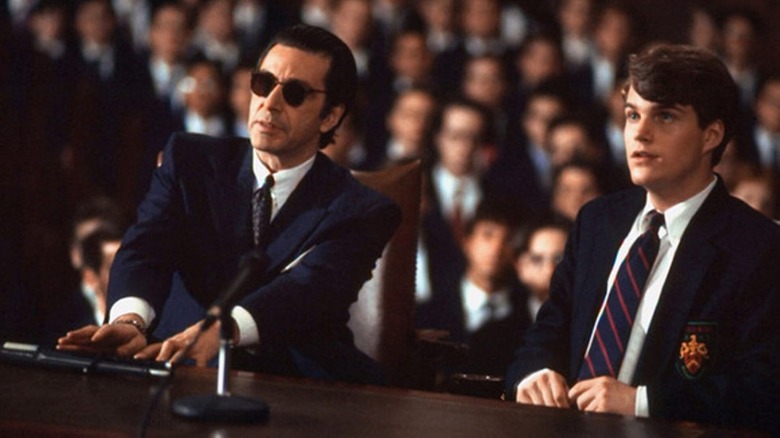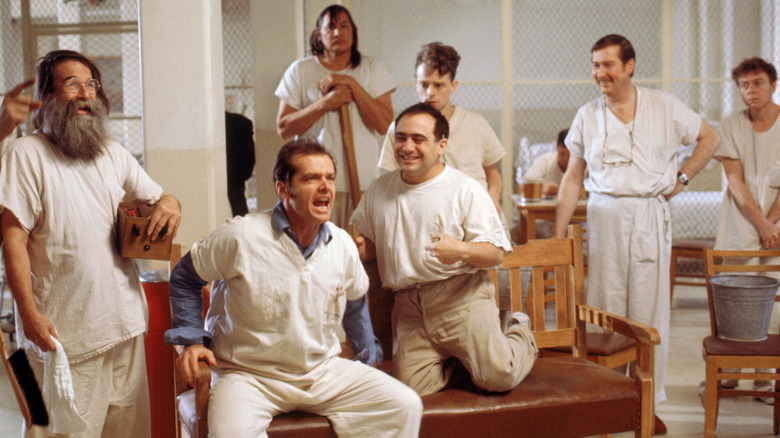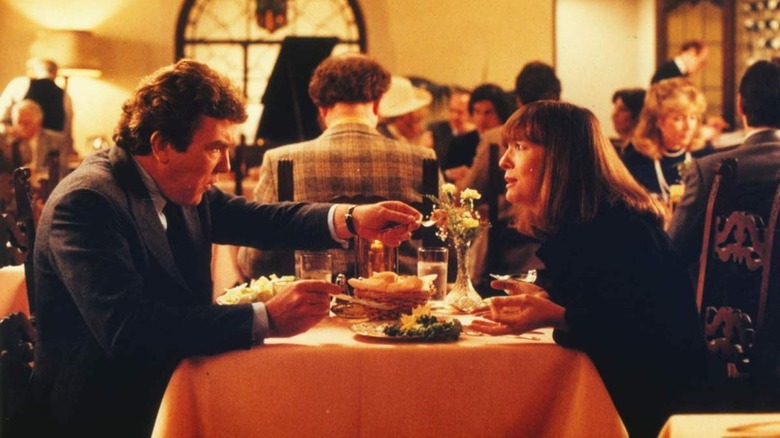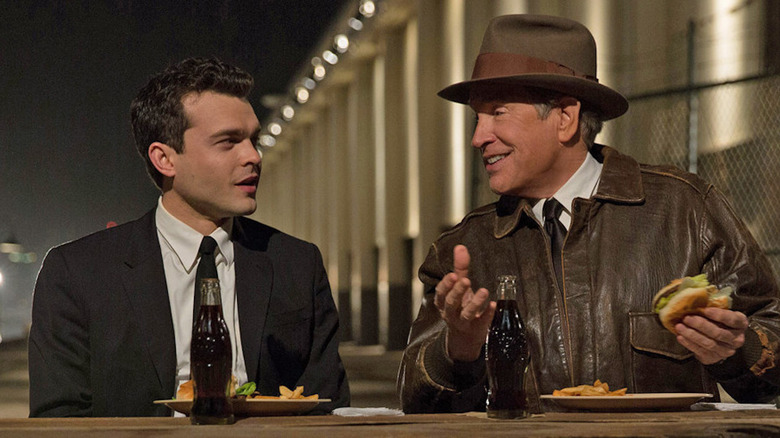The Late Bo Goldman Was One Of The Greatest Screenwriters Of All Time
When Bo Goldman, the two-time Academy Award screenwriter of "One Flew Over the Cuckoo's Nest" and "Harold and Maude," passed away on July 25, 2023 at the age of 90, the world lost a master dramatist and a razor-sharp observer of human behavior. Hailed by his Hollywood peers as a "screenwriter's screenwriter," Goldman possessed an unerring ear for dialogue and a cliche-eschewing sense of narrative. Be it a wistful satire of the American dream or a bruisingly authentic depiction of divorce, his name on the poster guaranteed an honest, offbeat view of humanity.
And it almost never happened. Goldman was born in the midst of the Great Depression on September 10, 1932. His father owned a chain of department stores that had fallen on hard times, but that didn't stop the besieged patriarch from sending his son to the prestigious likes of Phillips Exeter and Princeton University. It was at the latter institution that Goldman discovered a love for theater, but, as is often the case, the theater didn't exactly love Goldman back. He found favor with composer Jule Styne ("Gypsy," "Funny Girl") and earned a lyricist credit for the 1959 musical "First Impressions," but struggled to build off this minor success.
Goldman hooked up with legendary television producer Fred Coe in the 1960s, and worked as an assistant on the prestigious "Playhouse 90," which launched the directorial careers of masters like Sidney Lumet and John Frankenheimer. It was here that Burt Lancaster advised Goldman to give screenwriting a shot. This resulted in an early version of "Shoot the Moon," the defining work, in any medium, on the topic of divorce.
But Goldman's career was hardly off and running.
Finding dignity in madness and the margins
Goldman had gone 16 years without a writing credit when he landed "One Flew Over the Cuckoo's Nest." Laurence Hauben was the first screenwriter on Miloš Forman's adaptation of Ken Kesey's counterculture sensation, but it was Goldman who, by most accounts, brought the script home. It's perilous to ascribe aspects of a collaborative screenplay to one particular writer, but the digressive elements of Forman's movie, which lend depth to the inmates of the asylum (particularly Brad Dourif's Billy Bibbit), sing with Goldman's uncommon eloquence.
Goldman shared his Best Adapted Screenplay Oscar with Hauben, but he was perturbed that he could not claim sole ownership of the work. He'd served Kesey, who contemptuously claimed he never bothered to watch the film. So after co-writing the critically acclaimed Bette Midler vehicle "The Rose," he found his quixotic muse in Melvin Dummar, a real-life, down-and-out Utahan who claimed Howard Hughes left him $156 million in his will.
As Roger Ebert noted in his contemporaneous review of "Melvin and Howard," your average Hollywood screenwriter would've turned Dummar's tale into a courtroom drama, but Goldman, who found a quirky fellow traveler in the dearly missed director Jonathan Demme, wrote a bittersweet yarn about strivers on the margins of American life. It's a film of tiny epiphanies and victories. Every character enters the movie as a fully formed eccentric, and they surprise us every step of the way. Goldman gives these people a ragged dignity, and lets them speak the poetry of everyday life. It's a film to savor, and the Academy agreed by awarding Goldman the 1980 Oscar for Best Original Screenplay.
A contentious peak followed by studio-financed stability
"Shoot the Moon" was a jarring departure in tone. Albert Finney and Diane Keaton star as a deeply unhappy married couple who put their children through hell as they torture each other with mental and physical violence. The screenplay had been Goldman's "calling card" work throughout the 1970s, but it was ready to come out of the oven in 1980, when divorce rates in America were at a historic high. Goldman's words slash at the carotid artery of false domesticity, and, having spent the majority of my childhood listening to married adults drunkenly assail each other over slights real or imagined, I assure you every bit of invective rings true.
"Shoot the Moon" was strong stuff. It also got caught in an awards-season pissing match due to Diane Keaton's involvement in Warren Beatty's "Reds," so MGM unloaded it in the dead zone of February. Goldman, like many of his contemporaries (Robert Towne, William Goldman, and Alvin Sargent), spent most of the next decade doing uncredited script doctoring. The titles range from prestige pictures ("Ragtime") to lighthearted comedies ("The Flamingo Kid"). Again, I'm reluctant to give credit where I've no idea if it's due, but the dialogue in the latter film, a hugely underrated coming-of-age memory piece about a working class kid finding love and life lessons at an upper-crust beach resort, drips with that Goldman poetry.
A fitting swan song for a brilliant chronicler of quirk
Goldman teamed up with fellow doodler Martin Brest for 1992's "Scent of a Woman," which, at 156 minutes, is boldly tangential. The film's best moments would be cut or shaved down by a conventionally minded director, but Goldman, channeling his experiences at Phillips Exeter, seems to be talking to his younger self through Al Pacino's blind, suicidal Vietnam veteran. The charged exchanges between Pacino and Chris O'Donnell are the heart of the movie, and they're so authentic that you wish Goldman and Brest had downplayed or totally dispensed with the framing drama (which climaxes with a prep school disciplinary hearing).
Goldman's uncredited draft of "The Perfect Storm" was evidently crucial to earning the summer blockbuster a greenlight, but it's a mildly satisfying, relentlessly formulaic film. His last writing credit, Warren Beatty's "Rules Don't Apply," brought him back to Howard Hughes, and that film vibrates with the kind of oddball interactions that defined Goldman's career. It's a shaggy dog, but it's got style and smarts; it belongs to an earlier, more adventurous time when it was anathema to vacuum the quirk out of a Hollywood movie. It's lousy with lived experience. It's Goldman. And I'm afraid it ain't coming back.



